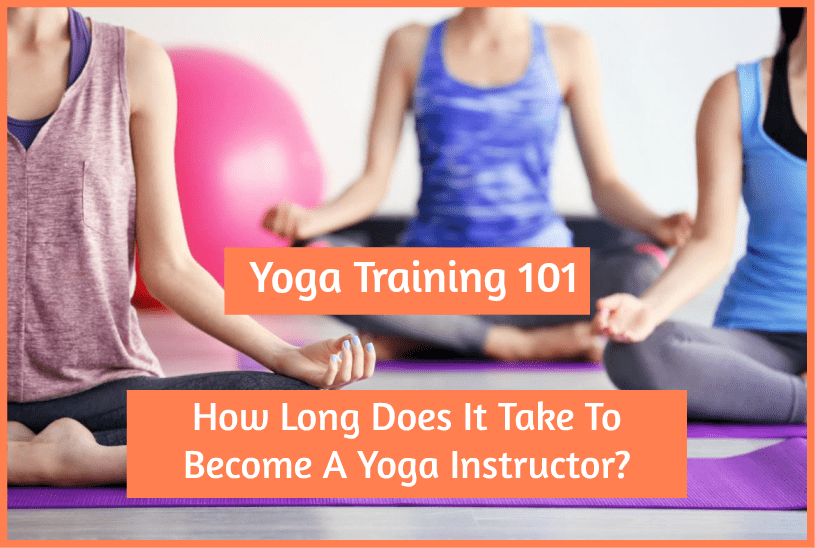
Yoga Training 101: How Long Does It Take to Become A Yoga Instructor?
Approximately 36.7 million Americans (that’s about 15 percent of adults) practice yoga.
Are you part of this group? Are you interested in taking your practice to the next level and sharing your love of yoga with others?
If this the case, you might be the perfect candidate for a yoga teacher training course.
Before you go ahead and sign up, it’s important to know what to expect from this training. Explained below is everything you need to know about becoming a yoga instructor.
How Long Does It Take to Become a Yoga Instructor?
This is one of the first questions people ask when they start looking into teaching yoga as their career or side hustle.
The first level of yoga teacher certification you need to complete is a 200-hour certification.
As the name suggests, this certification verifies that you have spent 200 hours learning the basics of yoga, its history, and how to teach it to others. Most yoga studios and gyms require instructors to have this certification before they will hire them to teach.

At first, 200 hours might seem like a ton of work. The course is usually spread out over a period of several weeks, though. You can find courses that fit your schedule and accommodate everything else that’s going on in your life.
For example, there are courses that only take place on the weekends or in the evenings. If you take this approach, it will take you longer to complete your full 200 hours. It’s more convenient, though, and won’t require you to sacrifice as much time away from your kids or job.
How Much Does It Cost?
The specific cost of yoga teacher training will vary depending on who’s teaching the course and where the course takes place.
On average, though, people tend to spend at least $2,000 on a 200-hour certification. This cost includes all training materials, as well as the certificate verifying that you participated in the course.
If the course is part of a retreat, it might cost closer to $3,000 or $4,000. In addition to training materials and the certificate, this extra money helps to cover the cost of room and board, as well as meals.
What to Expect During Yoga Instructor Training
Every yoga teacher training course is a bit different. It will vary depending on the instructors, the studio, and the other people who are taking the course with you. In general, though, you can expect to cover the following when you participate in the training program:
History of Yoga
Most courses begin by covering the history of yoga. Instructors will talk about where it originated, the evolutions it’s experienced over the years, and its foundations. This includes covering things like the Eight Limbs of yoga and reviewing sacred texts like the Bhagavad Gita.
Breathwork and Meditation
There’s also a thorough review of the benefits of breathwork and meditation for controlling the mind and cultivating peace from within. Instructors will take you through various breathwork techniques and help you understand them in great detail so you can go on to share them with your students.
Asanas
Yoga asanas, or postures, are another key part of the yoga teacher training experience. You’ll spend plenty of time reviewing the various poses and learning how to guide others into them.
Instructors will teach you not just the names of the poses (in English and in Sanskrit), but they’ll also cover the anatomy of the poses so you know which muscles and being stretched and strengthened.
Building Yoga Flows
Once you have a thorough understanding of the different poses, you’ll work on combining these poses and creating unique yoga flows. Instructors will emphasize the importance of connecting movement to the breath, and they’ll also give you important insight into how you can guide students through these flows and help them get the most out of their yoga experience.
Becoming a Great Teacher
Of course, yoga teacher training isn’t just about studying yoga’s history and different yoga poses. It’s also about how you can teach yoga to others.
You’ll spend lots of time learning how to provide students with helpful cues, project your voice, and make the studio a pleasant and safe place for everyone who enters. You’ll also cover the business of yoga and how you can create a profitable studio and market yourself to stand out from the crowd.
Is This the Right Path for You?
Some people know with a doubt that they’re meant to be yoga instructors. Others might be on the fence about whether a yoga training course is right for them, though.
If you fall into the latter camp, you may want to ask yourself whether you possess some of the key qualities of an effective yoga instructor, which include the following:
- Patient
- Disciplined and dedicated to self-study
- Generous
- Willing to plan ahead and prepare
- Adaptable to different audiences and environments
- Humble and willing to continue learning
- Diligent and eager to work hard to assist your students and foster a love of yoga in them
As you may have noticed, none of these qualities are directly related to a person’s physical practice.
You don’t have to have a certain amount of flexibility or look a certain way to be a great yoga instructor. It’s not about what you can do or the way you look; it’s all about your personality and the passion that you bring to the mat on a regular basis.
Become a Yoga Instructor Today
Now that you’ve gone through your Yoga Instructor 101 guide, are you still interested in becoming an instructor?
Teaching yoga gives an opportunity to introduce the practice to more people and help them change their lives in the same way that yours was changed. If this appeals to you, keep the information outlined above in mind. That way, when you begin your journey, you’ll know what to expect moving forward.
If, once you’ve become an instructor, you decide you want to open your own studio and start your own business, check out some of the resources in the Guides section of our site. They’ll teach you everything you need to know about running a business, managing employees, and more!
© New To HR


